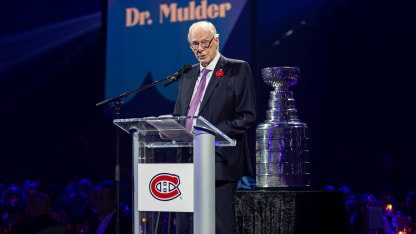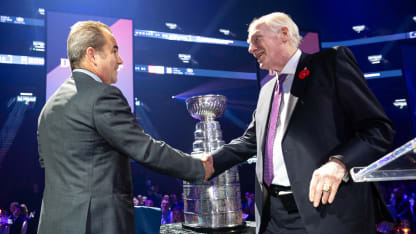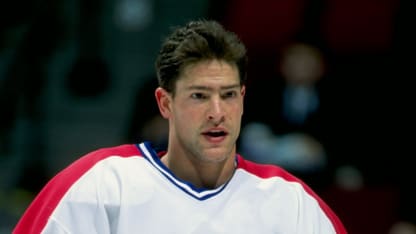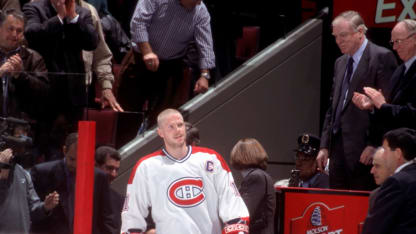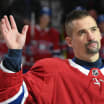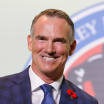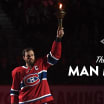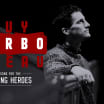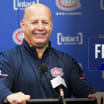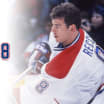On January 29, 2000, Dr. Mulder was in attendance at the Molson Centre – now the Bell Centre – watching his Club take on the Philadelphia Flyers. It started out as just a regular, mid-season game, the Habs in the midst of a trying season in which their 40 points placed them at the bottom of the Northeast Division. (The Canadiens were a little travel-weary, having been stuck in Carolina a few extra nights because of a winter storm.)
As we all now know, the Habs-Flyers contest turned out to be no ordinary game. In the middle of the second period, journeyman forward Trent McCleary dove to block a shot by Philadelphia defenseman Chris Therien and was struck by the puck in the neck, an impact which fractured his larynx and also resulted in a collapsed lung.
Doctors Mulder, David Fleiszer, and Vincent Lacroix immediately sprang into action to treat the 27-year-old, performing an emergency tracheotomy and inserting a tube into his chest to restore his breathing at the hospital, treatments which began just 17 minutes after the initial impact.
The incident ultimately cost McCleary his playing career, but the Swift Current, SK native, now 51, survived.
The medical team’s swift response, and the difference it made in saving McCleary’s life, helped Dr. Mulder convince the NHL to change league protocols to have all team medical staffs located closer to the action.
---
In September 2001, captain Saku Koivu became violently sick on his flight from Finland back to Montreal for Canadiens training camp. Complaining of severe discomfort in the stomach area, Koivu was seen by Dr. Mulder after spending the night of his return vomiting and looking ill.
After putting the then-26-year-old through a series of tests, Dr. Mulder and his medical team made the grim diagnosis: Koivu had cancer.
The captain would miss the first 79 games of the 2001-02 campaign, but on April 9, 2002, Koivu returned – his head still bald from his treatments – to a moving and unforgettable ovation from the Montreal crowd and helped the Canadiens beat the Ottawa Senators to book a ticket to the playoffs. The Habs upset the top-seeded Boston Bruins in the opening round of the postseason before falling to the Carolina Hurricanes in the next.
Koivu was named the 2001-02 winner of the Bill Masterton Trophy, awarded annually “to the player who best exemplifies the qualities of perseverance, sportsmanship and dedication to hockey.”
---
Although he didn’t do it alone, Dr. Mulder has been credited by both players for saving their lives.
“He was the head of the team that saved my life. He’s a guy I owe everything to; he was the leader of the [medical] team,” McCleary said recently in a tribute to Dr. Mulder. “He’s the standard for doctors in the National Hockey League.

